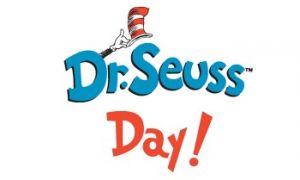

***Warning—Distressing Content*** It’s a sentence we hear too often in our sector: “There was insufficient evidence to substantiate the allegation.” But what does that mean in practice? It means that children—many too young to articulate trauma—are systematically failed. It means perpetrators continue working with children because our system prioritizes procedural thresholds over child well-being.
In July 2025, Australian early learning services faced a reckoning not only with child protection protocols—but with their values. The phrase “They’ve sent a male”, reportedly uttered as a relief educator arrived for shift work, revealed how fear has been weaponized in ways that quietly exclude men from the workforce.
In a devastating update to the case against alleged offender Joshua Dale Brown, authorities have confirmed that an additional 800 children will undergo precautionary STI testing. This follows revelations that Brown worked at four newly named childcare centres operated by Affinity Education Group, bringing the total number of affected families to over 830.
Despite these staggering numbers, not a single educator has publicly come forward with concerns. It's a silence that rattles through the core of early childhood education—begging the question: How did this happen on our watch?
When a family requests that male educators not change their child’s nappy, it touches on safeguarding, inclusion, and professional boundaries all at once. Here’s a way to navigate it thoughtfully.
An opt-in intimate care waiver is a formal consent form offered by some early childhood education and care (ECEC) services that allows families to choose whether male educators can perform intimate care tasks—such as nappy changes, toileting, or dressing—for their child. On the surface, this seems like a reasonable compromise: empower families, protect children, and avoid blanket bans on male staff. But scratch beneath the surface, and a deeper question emerges: Are we quietly institutionalizing gender discrimination?
Hosted by Semann and Slattery, this online conversation space is designed specifically for men working in early childhood education to engage in open, respectful dialogue about child sexual abuse prevention, safeguarding practices, and professional identity.
In the wake of harrowing abuse allegations against a male childcare worker in Victoria, Australia, many male educators are grappling with a new wave of scrutiny, stigma, and self-doubt. For Ben Munroe, a 27-year-old early childhood educator in Melbourne, the news was more than disturbing—it was personally devastating.
 As an Educator in Australia, your pay rate falls under the Children’s Services Award 2010. This award states the minimum amount that an employer can… Read More
As an Educator in Australia, your pay rate falls under the Children’s Services Award 2010. This award states the minimum amount that an employer can… Read More
 When working as a qualified Early Childhood Teacher (with a university degree) within a service, your rate of pay will come from the Educational Services… Read More
When working as a qualified Early Childhood Teacher (with a university degree) within a service, your rate of pay will come from the Educational Services… Read More
 When working as a Diploma Qualified Educator your pay rate is from the Children's Services Award 2010. This Award states your minimum rate of pay… Read More
When working as a Diploma Qualified Educator your pay rate is from the Children's Services Award 2010. This Award states your minimum rate of pay… Read More
 When working as a Cert 3 Qualified Educator, your pay rate is from the Children's Services Award 2010. This Award states your minimum rate of… Read More
When working as a Cert 3 Qualified Educator, your pay rate is from the Children's Services Award 2010. This Award states your minimum rate of… Read More
 Educational Leaders play a crucial role in their early childhood service by ensuring that the educational program aligns with best practices and supports the holistic… Read More
Educational Leaders play a crucial role in their early childhood service by ensuring that the educational program aligns with best practices and supports the holistic… Read More
 In early childhood education and care, ratios are more than a technicality—they are a frontline safeguard. Every child deserves responsive supervision, emotional connection, and developmental… Read More
In early childhood education and care, ratios are more than a technicality—they are a frontline safeguard. Every child deserves responsive supervision, emotional connection, and developmental… Read More
 With the new national child safety reforms kicking in on 1 September 2025, early childhood services like yours have a real opportunity to lead the… Read More
With the new national child safety reforms kicking in on 1 September 2025, early childhood services like yours have a real opportunity to lead the… Read More
 Here’s a comprehensive Mobile Phone and Smart Watch Policy tailored for early childhood education and care (ECEC) services in Australia, aligned with the latest 2025… Read More
Here’s a comprehensive Mobile Phone and Smart Watch Policy tailored for early childhood education and care (ECEC) services in Australia, aligned with the latest 2025… Read More
 The Sea of Fish Challenge is a national initiative that invites children, educators, families, and communities to create and display fish artworks as a symbol… Read More
The Sea of Fish Challenge is a national initiative that invites children, educators, families, and communities to create and display fish artworks as a symbol… Read More
 Across the early childhood education and care sector, educators are sounding the alarm: current staffing ratios are insufficient to deliver safe, meaningful, and developmentally appropriate… Read More
Across the early childhood education and care sector, educators are sounding the alarm: current staffing ratios are insufficient to deliver safe, meaningful, and developmentally appropriate… Read More

In early childhood education, ratios are more than numbers. They are the heartbeat of safety...
See more...
An employment contract is an agreement between you and your employer. It might set out...
See more...
On 2nd March, it is Dr Seuss Day. It is a day that celebrates the...
See more...© 2009-2025 Aussie Childcare Network Pty Ltd. All Rights Reserved.

